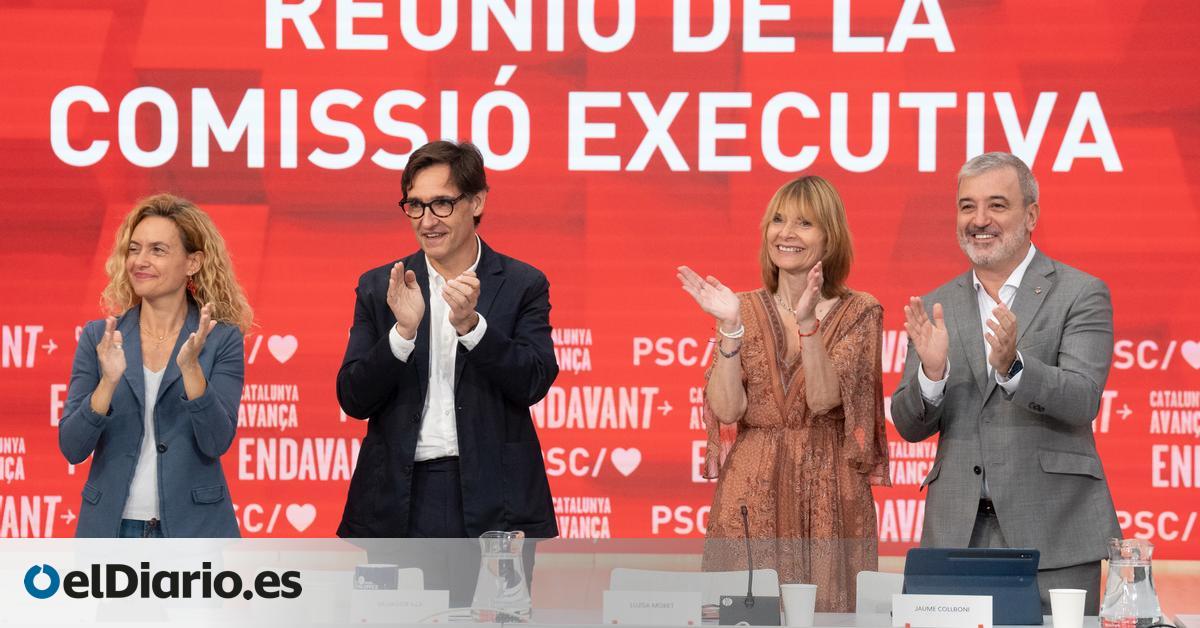
The decision of the ERC rank and file was not easy and support for the agreement came out with a much narrower margin than the leadership would have liked: 53% against 44%. But, finally, Salvador Illa has secured enough support from the 20 pro-independence deputies, which he can add to the 6 from the Comuns, to undergo an investiture session that will make him the next president of the Generalitat.
The path is clear, but not free of possible accidents. The most feared at the moment is the decision that the ERC youth organisation, Jovent Republicá, must take, which has already announced that it will decide on Monday on the vote of its deputy in the Parliament.
Although ERC does not even consider the possibility that its youth could opt for a decision that goes against the opinion of the entire membership, the truth is that the vote of the deputy Mar Besses could hold the key to Illa’s investiture: her rejection of the agreement between republicans and socialists, and even an abstention, would frustrate the election of the leader of the PSC.
“We have the utmost respect for the internal debate within Jovernt Republicà, but I trust that there will be an agreement,” said Marta Rovira on Friday. But, despite the caution until the youth organisation decides, neither ERC nor the PSC believe that this setback is likely once the Republican membership test has been passed, and some voices in ERC even compare it to a “tamayazo”.
Beyond this possible last setback, this Friday there were sighs of relief at the headquarters of both the Republicans and the Socialists. Both have narrowly avoided a situation that would lead Catalonia to an uncertain repeat election and which would have affected the position of both, ERC because of the poor prospects and the PSC because it faced a campaign in which it had to defend the agreement reached.
All of this was avoided in an internal ERC consultation with a high turnout and in which the yes vote won by a narrow margin. “It is a vigilant yes,” Marta Rovira summarised, stressing that the leadership sees the division of the membership as a sign of the difficulty of the moment and the political distance with the PSC.
Illa will form a minority government
Salvador Illa now has the responsibility of undergoing an investiture and, if nothing goes wrong, being invested as the first non-independence president after the independence process. The socialist will arrive at the Palau de la Generalitat with the strength of someone who knows that he does not have an alternative majority in the Parliament, but also of someone who begins his journey with a minority Government and forced to defend a very ambitious agreement with ERC.
The Catalan socialists were aware that the agreement to appoint Salvador Illa would not exactly garner praise outside Catalonia. It is always difficult for the PSOE to defend changing regional funding in favour of Catalonia, as it has been until now to talk about anything that sounds like extending the economic agreement to communities other than Euskadi and Navarra.
But the PSC also understood that, on the one hand, they had to sign an agreement that would undoubtedly convince the ERC membership because none of its executives, neither in Madrid nor in Barcelona, can sustain themselves with an arithmetic that leaves them out. And, on the other hand, they also believe that the conquests of the PSOE or the PSC are ideal moments to take steps towards the decentralization of the State.
This is how a document was reached that has given rise to much talk, both among socialists and among their detractors, and that has also generated many doubts about its compliance among the ERC rank and file. However, both the PSOE and the PSC have chosen to defend it, although they have remained silent under the pretext of respecting the deliberation of the republicans. This Saturday, Illa will finally speak out for the first time and make explicit his interpretation of what was agreed.
Quick investiture but pending Puigdemont
Both the Socialists and Republicans are interested in not delaying Illa’s investiture and, as far as possible, they want to set it in the next few days. But both are keeping an eye on Carles Puigdemont, who has promised to return to Catalonia for the debate that will elect the next president. A situation that, if it occurs, could mean the arrest of the former president, whom the Supreme Court refused to grant amnesty.
The Republicans say that the sword of Damocles held out by the leader of Junts will in no way make them change the direction of their vote. But it could make everyone, including Illa himself, try to find suitable dates for the investiture and to overlap as little as possible the arrest of Puigdemont with the entry of the socialist to the Palau de la Generalitat.
The PSC is willing to be generous with the calendar, as they reiterate they have been with the signed agreement. A gesture towards an ERC leadership that has burned itself to death to steer the ship towards the shore that, they consider, is the lesser evil. The party has not sunk, but almost, and few photographs are more explicit of a formation split in two than that 53% against 44% that the consultation on Illa has yielded.
Now Marta Rovira, Pere Aragonès and the rest of the leadership hope that ERC will step out of the public eye for a few months, the time needed to hold a congress at the end of November and for the rank and file to elect a new leadership. Oriol Junqueras will compete in it, having chosen to withdraw, at least in public, from the decision to appoint Illa. But it is most likely that alternative leaderships will also emerge. And all of them will arrive with a new strategy on how to relate to the minority government of the PSC.
Source: www.eldiario.es

